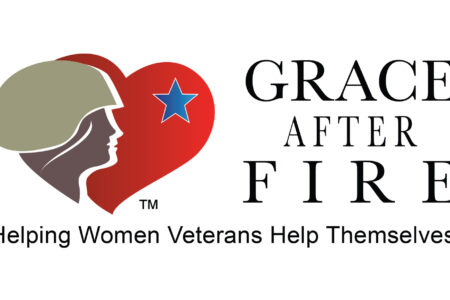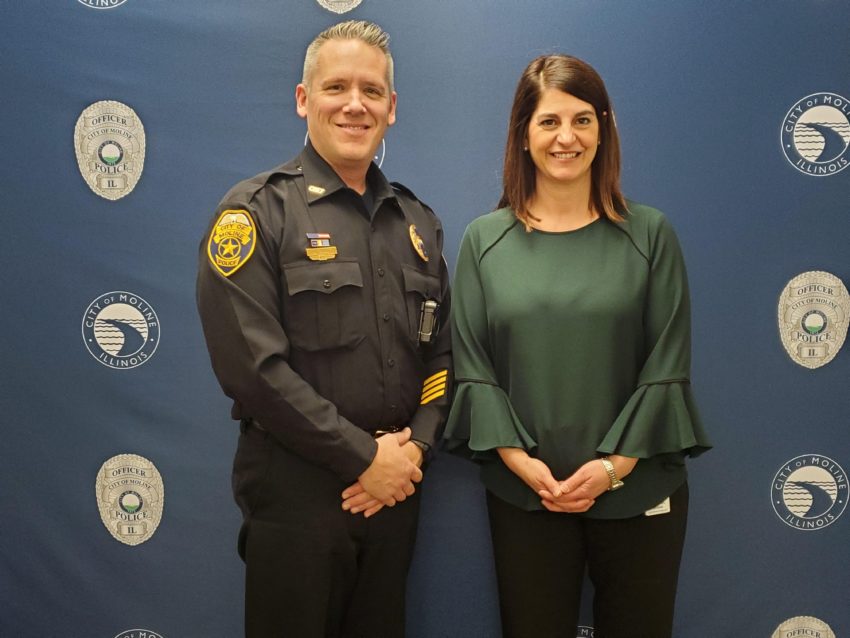
Share On Social!
Police Chief Darren Gault believes kids deserve more support in avoiding risky behaviors.
Gault knows when police officers interact positively with kids inside schools and out, they help kids stay in school and stay away from crime in Moline, Ill. (16.8% Latino).
But officers already have so many unfunded mandates on their time.
That is why Gault was so excited when he learned about the low-burden, no-cost “Handle With Care” program, which provides positive interactions for kids who experience traumatic events.
Gault shared the program with Rachel Savage, superintendent of Moline-Coal Valley School District.
Together, Gault and Savage—with help from a Salud America! Action Pack—are launching the Handle With Care.
People in Moline Face Stress, Violence
Gault and Savage were both new to their jobs in summer 2019.
But they knew the issues facing Moline, one of the five cities on the Mississippi River that make up the Quad Cities—along with Davenport, Bettendorf, Rock Island, and East Moline—in northwest Illinois.
About two of five kids in this region are low-income, living below 200% of the poverty level.
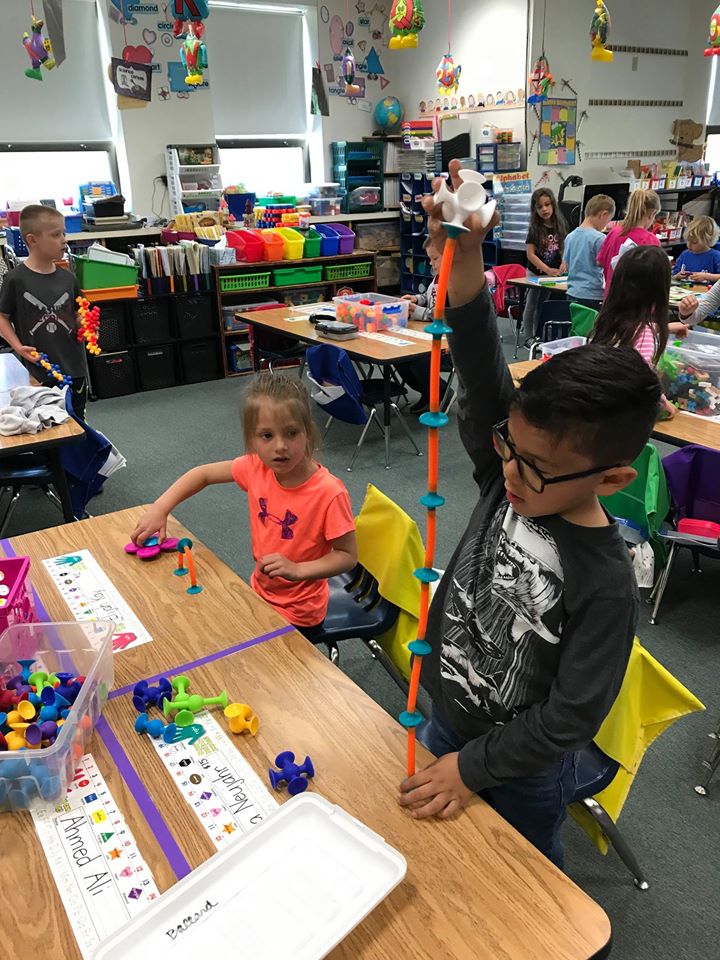
More than half of Moline students are in the free/reduced lunch program.
Sadly, nearly one in five adults (19.5%) were abused/neglected as a child. Nearly one in four women (23.6%) say they have been hit, slapped, pushed, kicked, or otherwise hurt by an intimate partner. More than one in three adults (37.2%) say their life has been negatively affected by substance use disorder.
“Beyond poverty, hunger, and homelessness, some students experience or witness violence, other crimes committed, and parents arrested,” Savage said.
Disparities by income, gender, and ethnicity exist.
For example, 37.8% of very low-income adults were abused/neglected as a child compared to 14.4% of middle/high income adults. Moreover, 23.7% of women and 26.9% of Latinos were abused/neglected as a child compared to 15.1% of men and 16.7% of whites.
The effects extend beyond the victims to family members and communities.
“Our students have experienced things at home and in their community that impact their ability to succeed in school,” Savage said. “Schools need to help remove sources of stress and anxiety, not be another one.”
These are the kids who are most in need of positive experiences and interactions at school, however are the most at risk for acting out and engaging in risky behavior, thus punitive consequences.
Kids in Moline Need Consistent Interactions in School
Gault and Savage know that adversity in childhood, such as parental substance use disorder or witnessing violence, affects cognitive development, mental and physical health, and risk-taking behavior.
These kids have difficulty identifying feelings, communicating needs, staying focused, and controlling impulses. Without stable, caring adults as buffers, these kids can act out or skip school increasing their likelihood of suspension, expulsion, and involvement in the criminal justice system.

Sadly, youth with emotional or mental health problems are often misidentified with behavioral issues.
Some teachers attribute negative student behavior to a child’s personality rather than their circumstances and dole out harsher discipline instead of compassion, especially if kids are minorities.
In Moline, 80.3% of children younger than 18 are non-white—37.5% are Latino.
“It’s safe to say that more than half of Moline students are struggling with consistency at home,” Savage said. “They don’t have consistent supervision, consistent food, or consistent sleep.”
Savage knew that many educators would be less harsh if they knew their students were dealing with adversity at home or in the community.
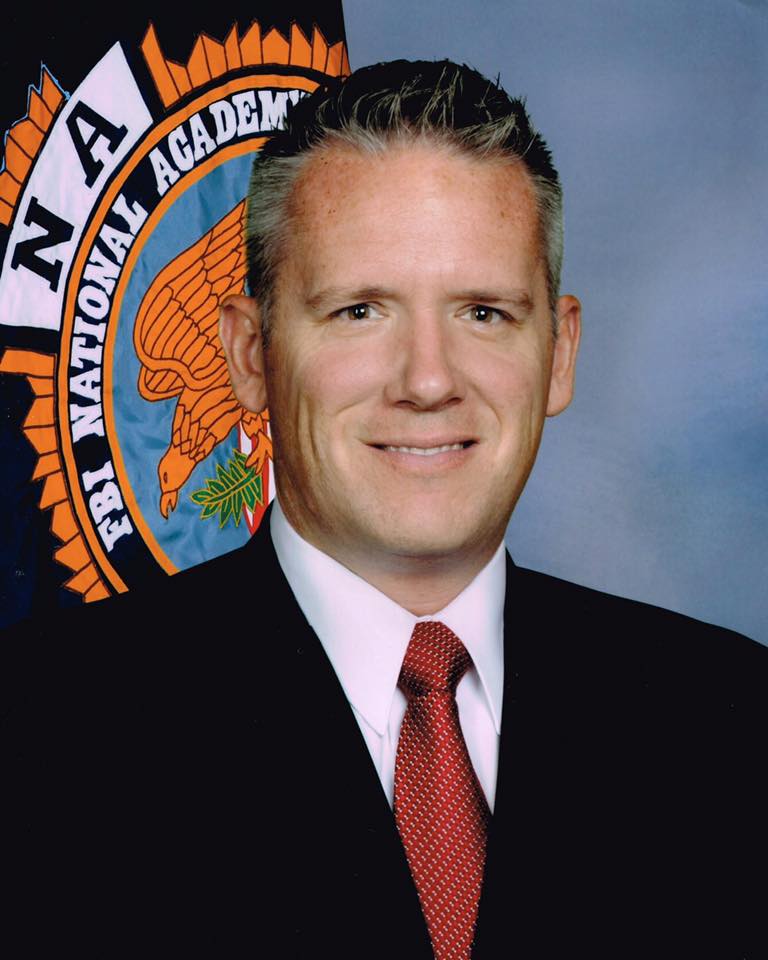
Gault knew police officers could not arrest themselves out of the resulting problems.
How could they work together to make a difference?
Schools Don’t Know What Their Students Are Dealing With
Many educators struggle with what they can and can’t share when it comes to a child’s personal life.
Due to hypervigilance to protect confidential information, they often don’t share anything, leaving other educators and school leaders in the dark.
Savage, for example, regrets how she reacted to one student’s outburst years ago—although in accordance with their code of conduct.
She didn’t know at the time that the student was going through a terrible situation at home. When she found out two weeks later, she was upset with herself.
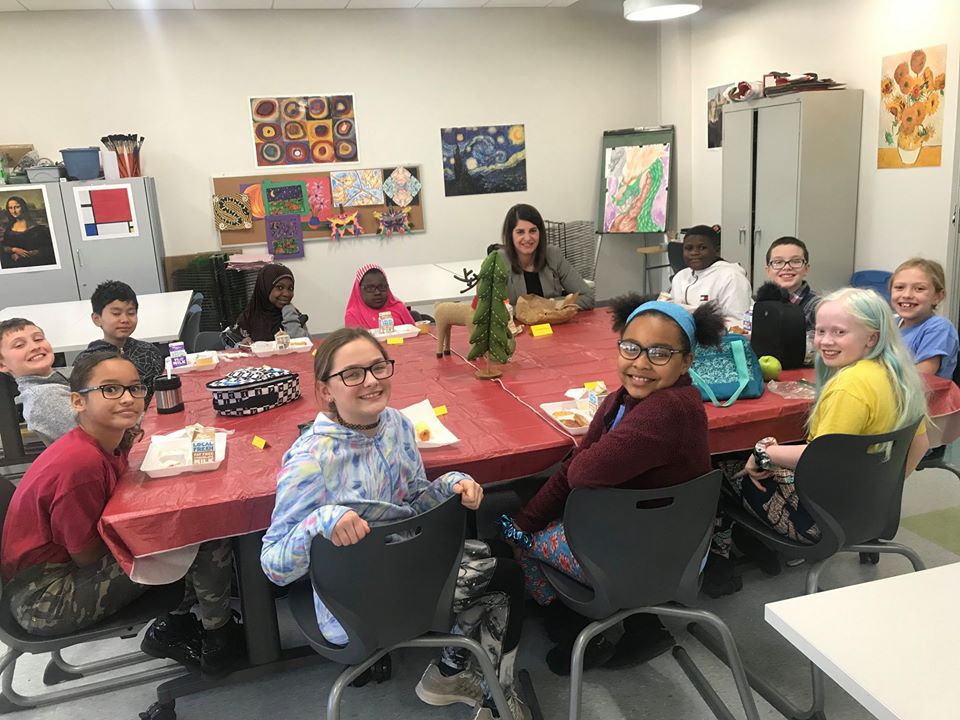
“If I knew before, I would have absolutely handled it in a different way,” she said. “I would have handled that student with more care.”
Savage would soon learn what it really meant to handle a student with care.
Law Enforcement Spreading the Word About the Handle With Care Program
Gault, meanwhile, was happy to learn that Paco Balderrama, his fellow FBI National Academy alum, had become the first Latino promoted to deputy chief in Oklahoma City in April 2019.
A few months later, Gault saw Balderrama in the news again—this time about Handle With Care.
So, he called and asked him about it.
Balderrama sent Gault a link to the Salud America! Handle With Care Action Pack.
The action pack explains all about the Handle With Care program, which was created several years ago by Handle With Care was created by the West Virginia Center for Children’s Justice to enable local police to notify school districts when they encounter a child at a traumatic scene, so school staff and mental healthcare providers are prepared to provide immediate support for students.
“I signed up for the action pack and just started going through it,” Gault said. “It was easy. I don’t know why anybody wouldn’t do it.”
Handle With Care has three main components:
- Law enforcement notification — When law enforcement identifies a child at the scene of a traumatic event (domestic violence, meth lab explosion, drug raid, shooting, etc.), they will send a confidential notification (by email, text, phone, or fax) to the student’s school district or childcare agency with four pieces of information: the child’s name, age, school name, and a message to “Handle With Care.” Law enforcement does not share any details of the incident.
- Trauma-informed school training— The school district or childcare agency will create a process to triage “Handle With Care” notifications from police to relevant teachers and staff. These individuals are trained to observe the student’s behavior and respond to their needs using trauma-sensitive interventions.
- School-located therapy— When school interventions are not sufficient, mental health professionals trained in Trauma-Focused Cognitive Behavior therapy can provide on-site treatment at schools during a time that is least disruptive to the student’s academic schedule (with consent from the parent or guardian).
“We already write police reports and send emails, so it is low-cost and low-burden for us,” Gault said. “It may even reduce school costs if they are spending a lot of time on bad behavior.”
Police Teaming Up With Schools To Provide Consistent Interactions
The action pack lays out five steps to get a Handle With Care program started.
Start the Conversation. Gault called Savage and explained the program.
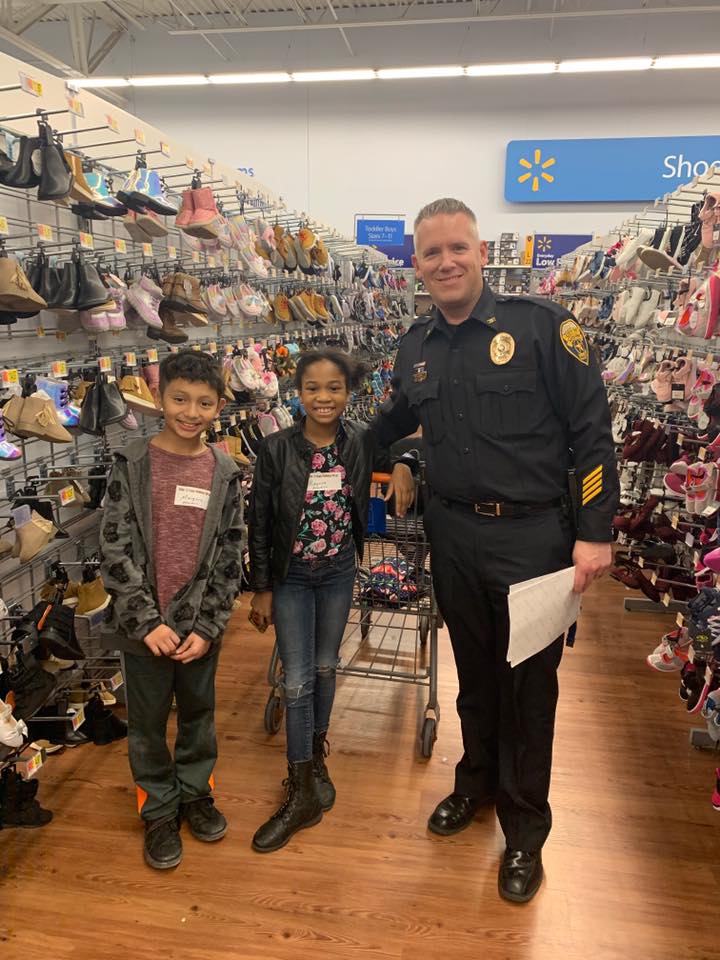
She hadn’t heard of it, so they scheduled a meeting to discuss further. He brought the fact sheet provided in the Action Pack.
“Our agency’s goal is to have a good relationship with schools,” Gault said. “Since we were both new, I thought this could help us reach our goal and help students.”
Create a Group and Vision. Savage was on board immediately and brought the idea to the district-level cabinet and principals.
“This gives schools one more tool in their tool belt to help kids,” Savage said.
They were interested and invited Gault to give them a presentation about the program at their next monthly administrator professional development meeting. Gault used the PowerPoint provided in the Action Pack.
“Gault went through the program, how it works, each entity’s role, and our next steps,” Savage said.
To ease concerns about confidentiality, Gault also highlighted that law enforcement would not send any details in the notification and that the notification would include the same three words for every kid, “Handle With Care.”
Savage knew from her past that she didn’t need any details from police.
“We don’t know need to know anything about the incident to be sensitive to kids,” Savage said. “We just need a heads up that they experienced something to provide support and resources instead of only a punitive response.”
Create a Notification Flow. With police and school leaders in agreement, each entity involved their technology departments to discuss how to deliver and triage the notification.
They decided on email, over fax or phone, and created a new email for law enforcement to use that would go to Savage, principals, and the four resource officers in the school district.
With support from their legal departments, Gault and Savage modified the memorandum of understanding (MOU) from the Action Pack.
Gault presented it to Moline City Council and Savage presented it to the school board for approval.
“We got the notification set up and we got approved, so I went back to the action pack to start step 4,” Gault said. “Training.”
Implement Your Handle With Care Program Training. Gault did the first round of training for police and school administrators.
From the Action Pack, he used the West Virginia Center for Children’s Justice’s 7-minute Roll Call Video, a condensed version of the presentation, and the two learning modules, allowing five weeks for everyone to complete both.
Gault even created a two-page internal policy outlining the purpose and procedure for the police department, something that wasn’t in the Action Pack.
For example, one procedure states, “should a law enforcement office be uncertain as to whether or not to give notice to the school, judgement should be exercised in favor of notification.”
Savage has been in the process of training school staff, using some materials provided in the action pack as well as others.
“It’s a fluid process as we learn more about trauma and trauma-informed care,” Savage said. “We are adding this program to our ongoing development.”
They are learning to recognize signs and provide support before misbehavior occurs, as well as trauma-informed responses after misbehavior occurs.
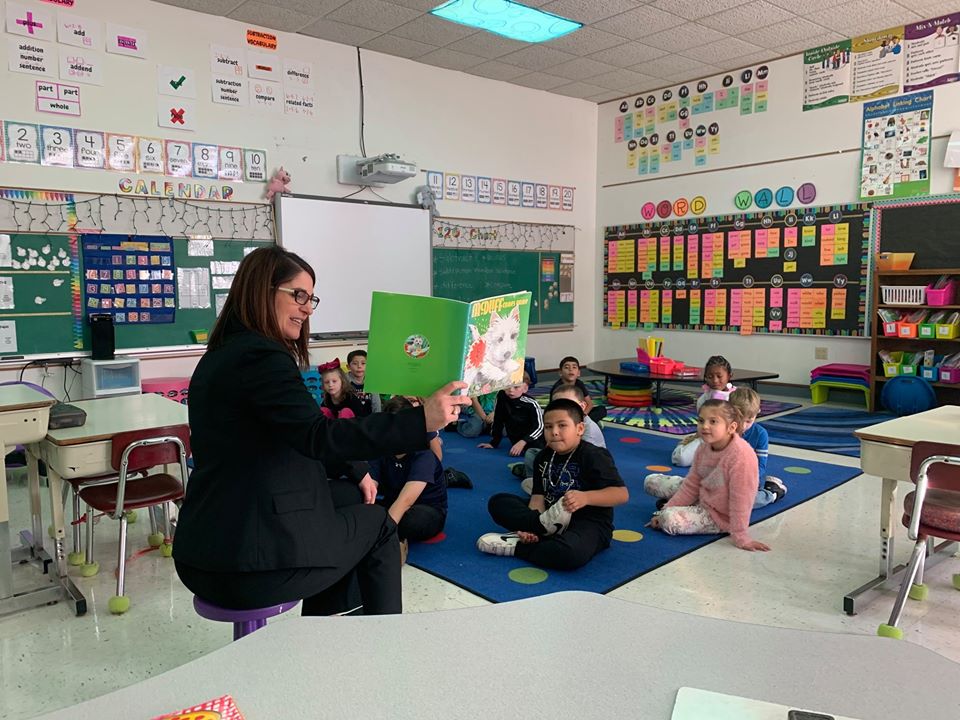
“We want children to feel safe and successful as they navigate their day,” Savage said. “If not, the notification gives us a leg up on understanding why so we can take alternative action to disciplinary, punitive action.”
Promote the Program. In November, the local news did a story about Gault and Savage working to start the Handle With Care program.
“Once the news story hit, teachers from outside the area called and wanted to start the program, too,” Gault said. “I shared the action pack with them and offered to present to their school board.”
Savage shared the Handle With Care program at a regional superintendent meeting, as well as the Action Pack.
Officially Launching Handle With Care in 2020
Moline police and schools will launch the program on January 7, 2020.
Although most people want their name on a big-league, super-star program, Gault and Savage know that positive, day-to-day interactions is the key to consistency that can change lives.
“Some people swing for the fences for huge, life-changing things, where something as simple as giving a teacher a heads-up so a kid doesn’t get suspended can be life-changing,” Gault said.
“The notification allows us to ensure we have delicate gloves on hand on the days when kids need them most,” Savage said. “We will be alerted and prepared to navigate any need the child brings with them to school.”
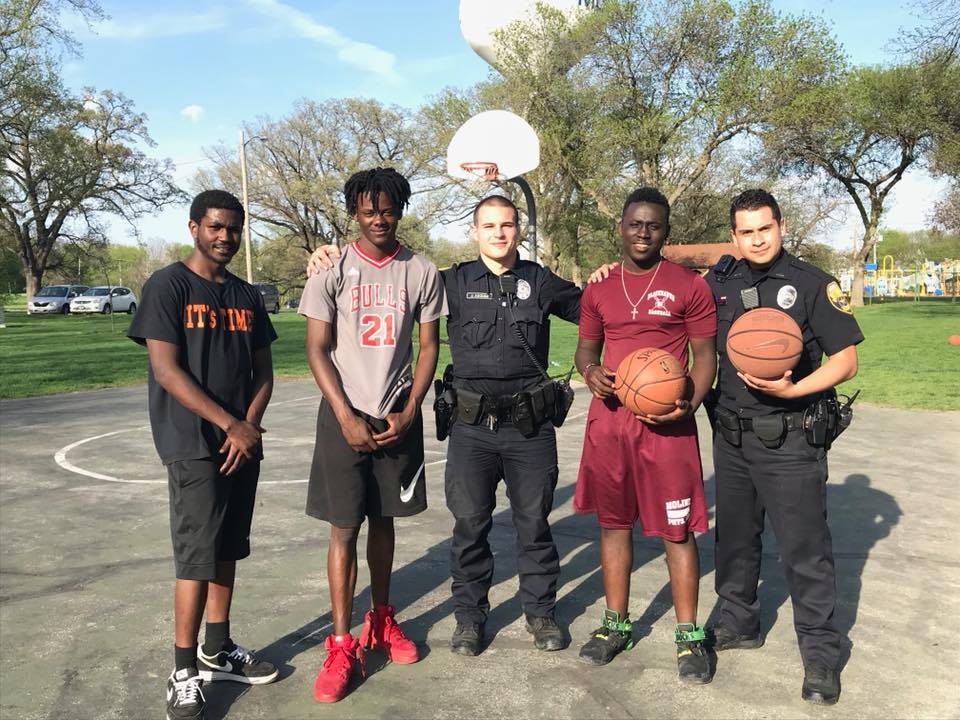
Gault and Savage are also worried about the kids who weren’t coming to school, maybe because they didn’t feel safe anywhere.
By handling students with care and responding positively and with alternative discipline, this program will create a more safe and supportive school environment overall.
“Success in this program will look like students coming to and staying in school.” Savage said.
Start a Handle With Care program in your school district today with help from our action pack!
Start a handle with care program!
Explore More:
ACESBy The Numbers
142
Percent
Expected rise in Latino cancer cases in coming years
This success story was produced by Salud America! with support from the Robert Wood Johnson Foundation.
The stories are intended for educational and informative purposes. References to specific policymakers, individuals, schools, policies, or companies have been included solely to advance these purposes and do not constitute an endorsement, sponsorship, or recommendation. Stories are based on and told by real community members and are the opinions and views of the individuals whose stories are told. Organization and activities described were not supported by Salud America! or the Robert Wood Johnson Foundation and do not necessarily represent the views of Salud America! or the Robert Wood Johnson Foundation.

